Apple debuts A19 and A19 Pro processors for iPhone 17, iPhone Air, and iPhone 17 Pro
New phones, new chips, more cooling.
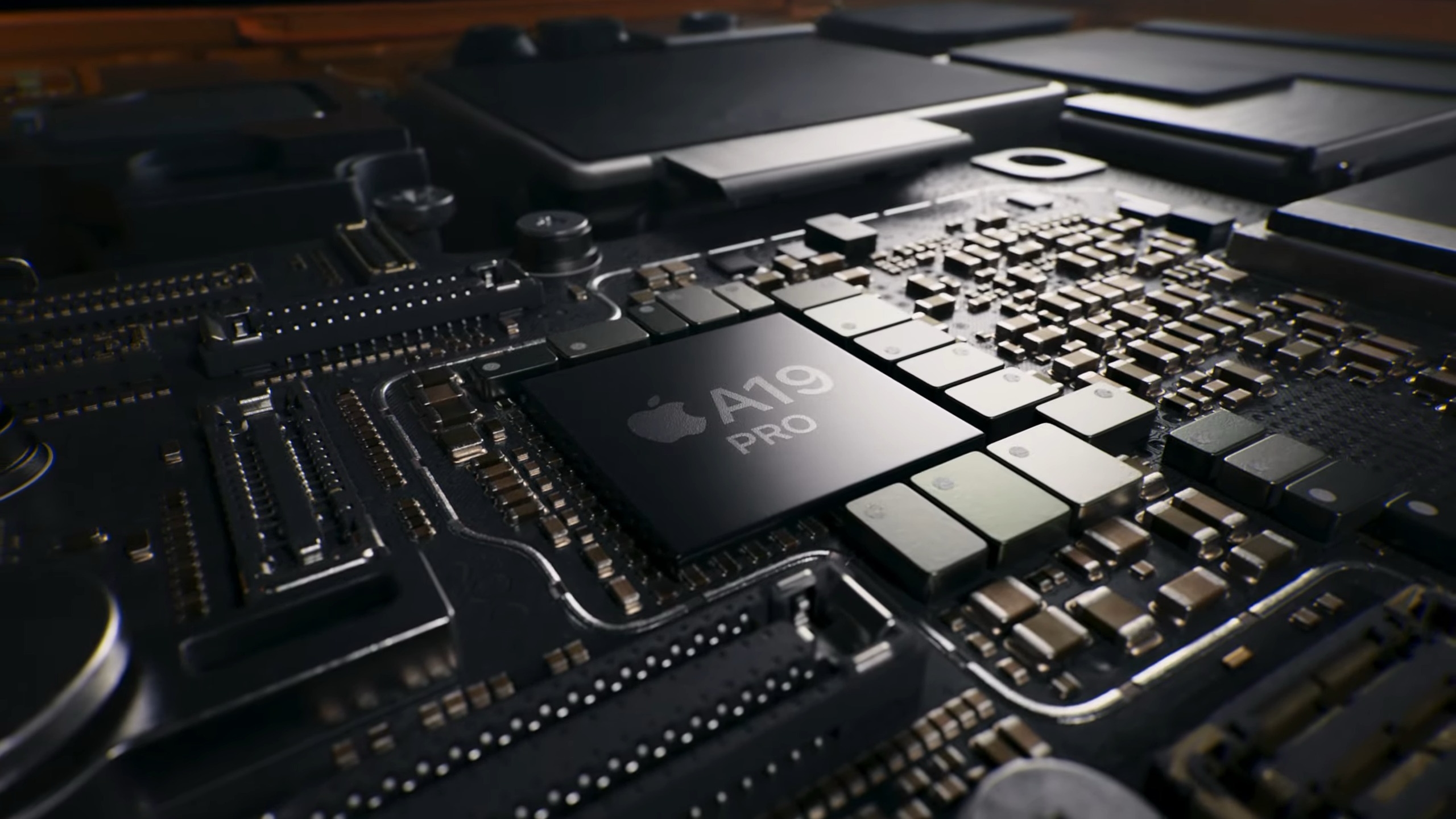
Apple announced a suite of four new iPhones today, and with them, new processors to power the devices. Additionally, the company also has new networking and cellular chips.
The phones include the iPhone 17, iPhone Air (a new 5.6-mm thin design), iPhone 17 Pro, and iPhone 17 Pro Max.
The base iPhone 17 will be powered by the A19 system on a chip, while the rest of the lineup relies on the more powerful A19 Pro. These chips are likely built on TSMC's latest N3P process node, which is also expected to be used for Apple's upcoming M5 chips for iPads and Macs.
A19
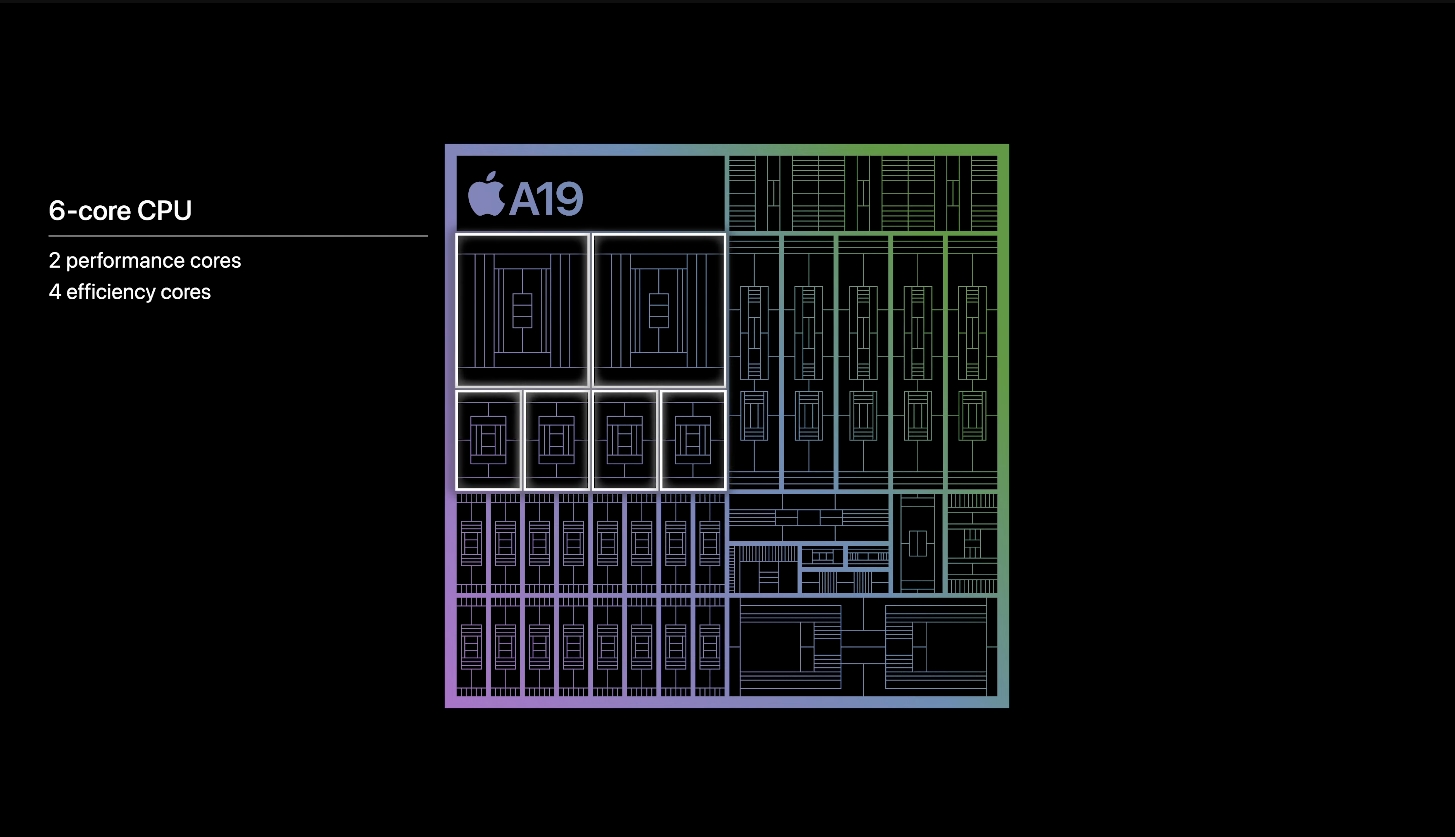
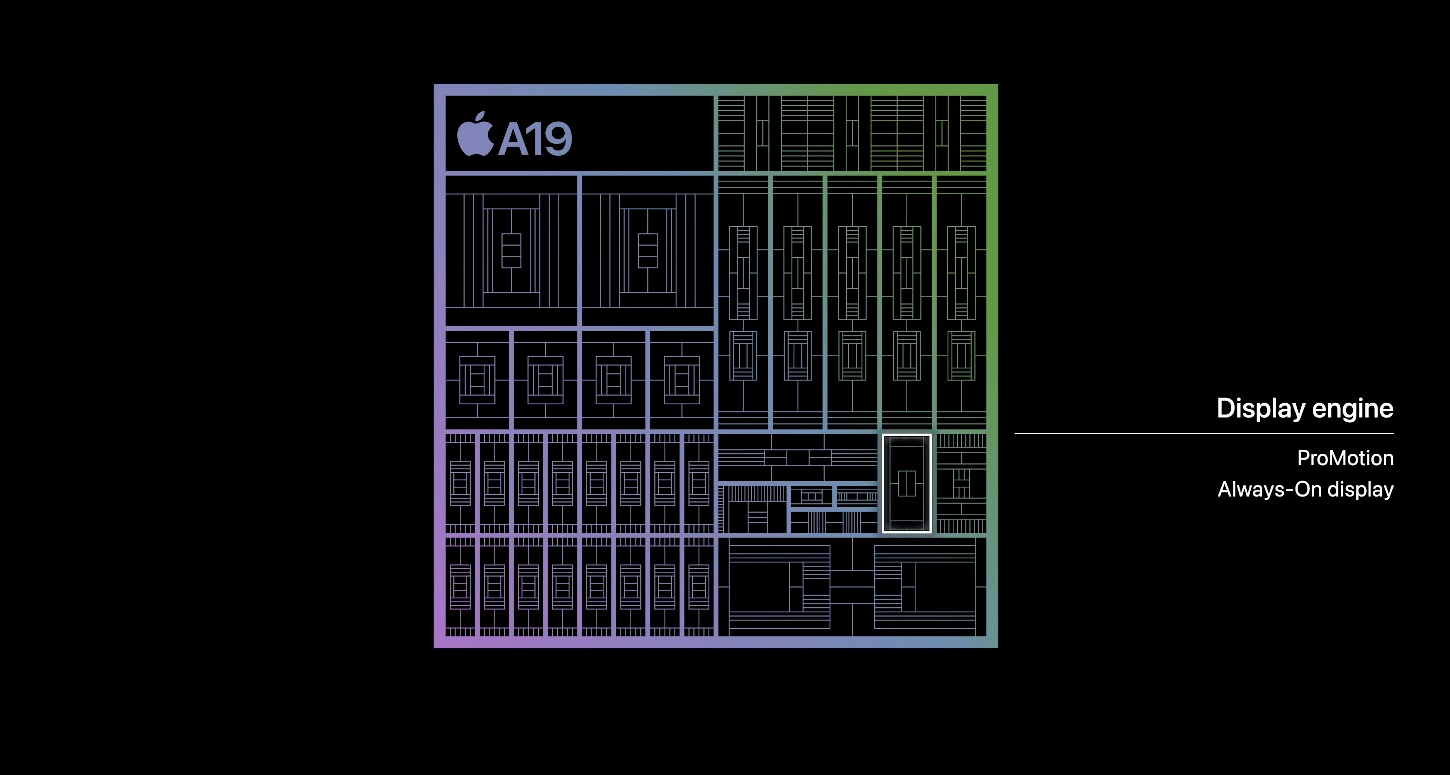
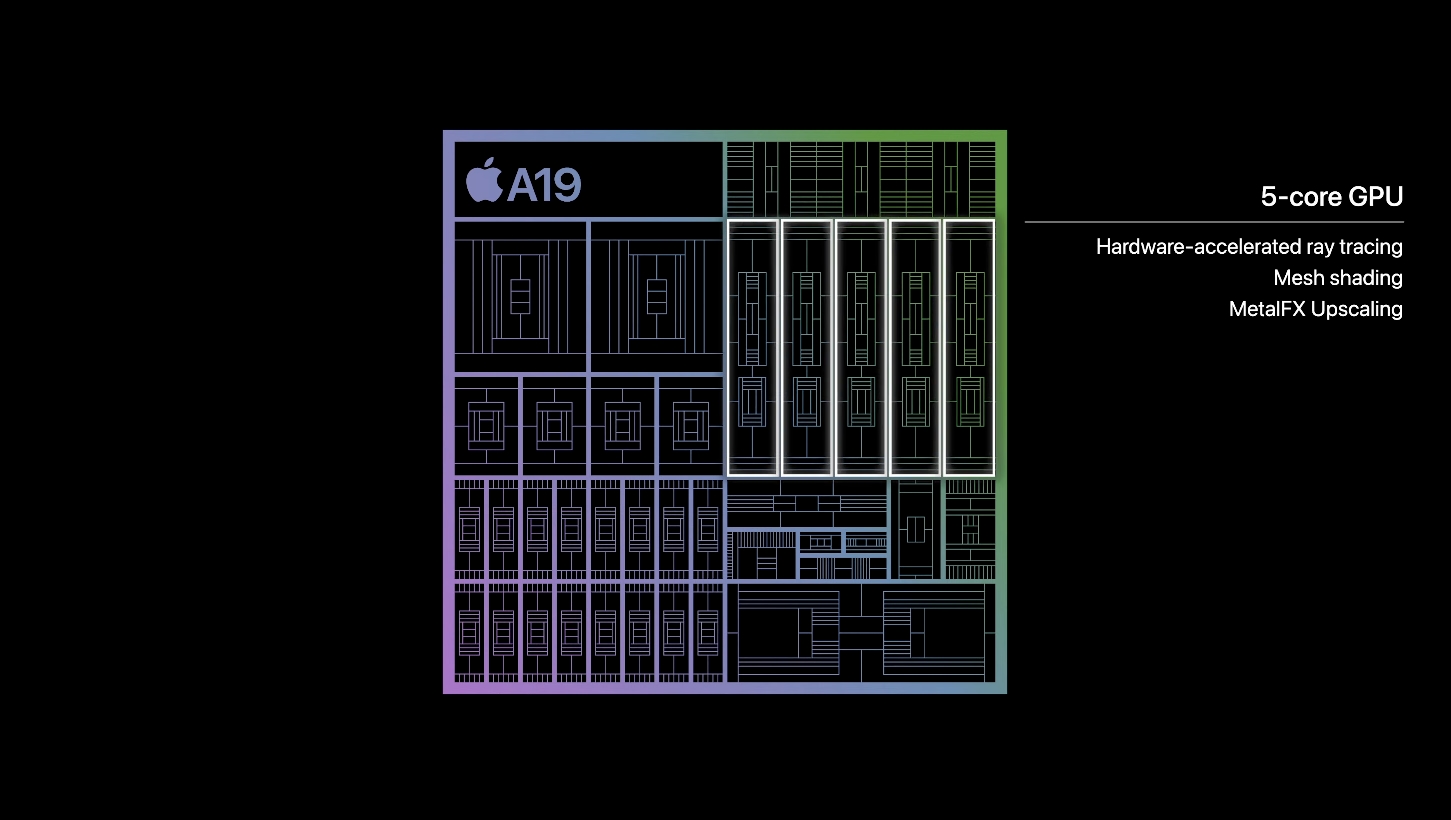
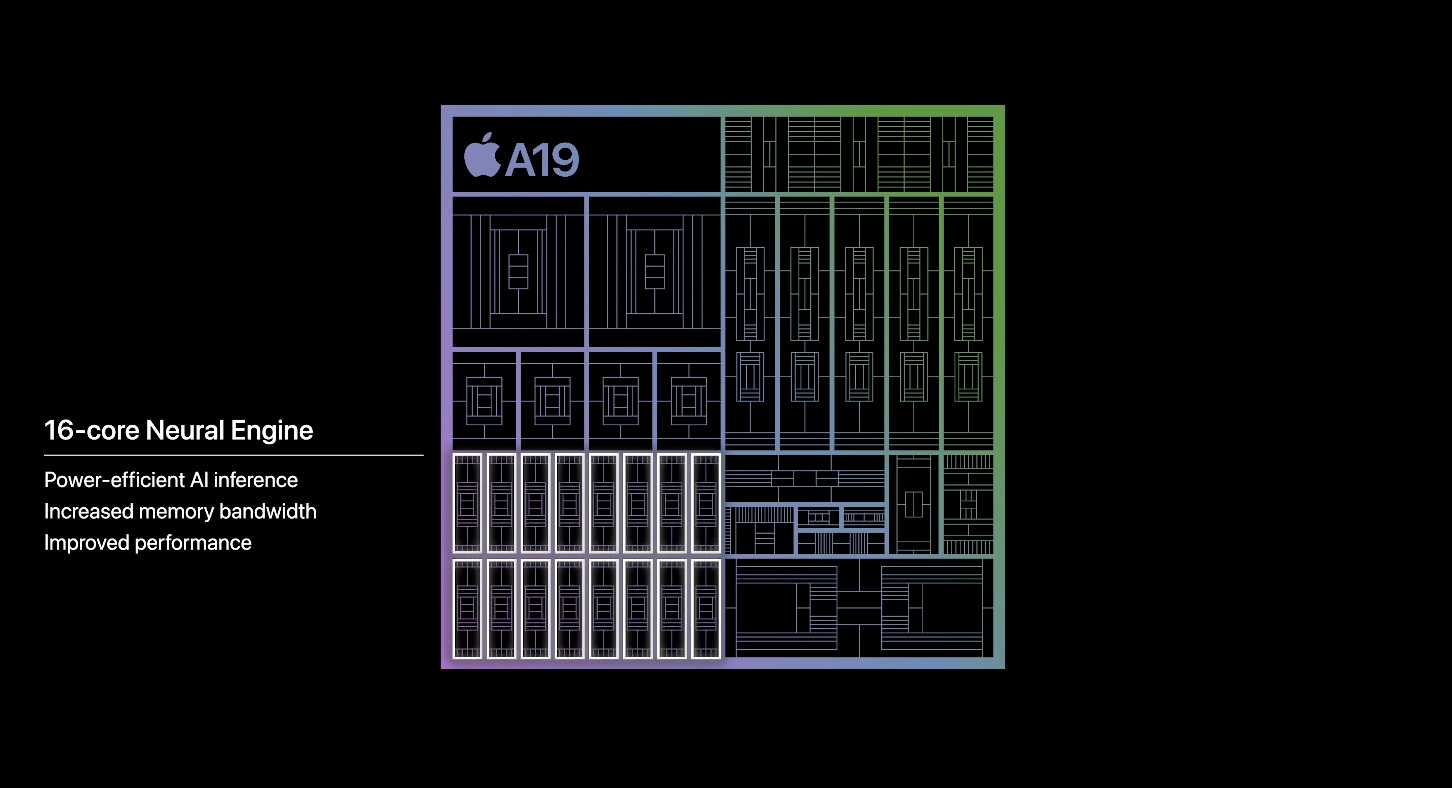
The A19 boasts six CPU cores and five GPU cores. The processor has four efficiency cores and two performance cores, while the GPU continues advancements in hardware-accelerated ray tracing, mesh shading, and MetalFX upscaling.
A19 Pro
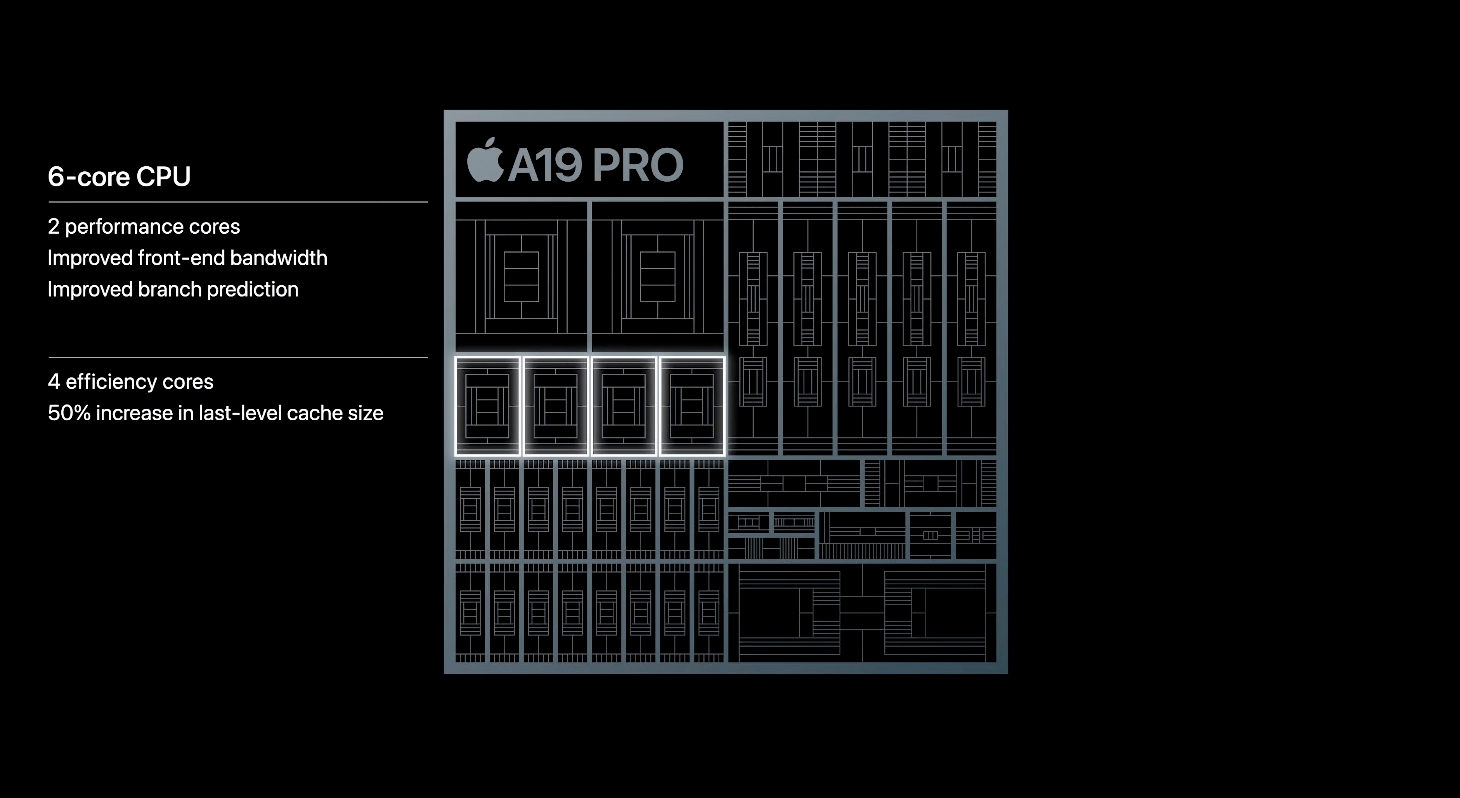
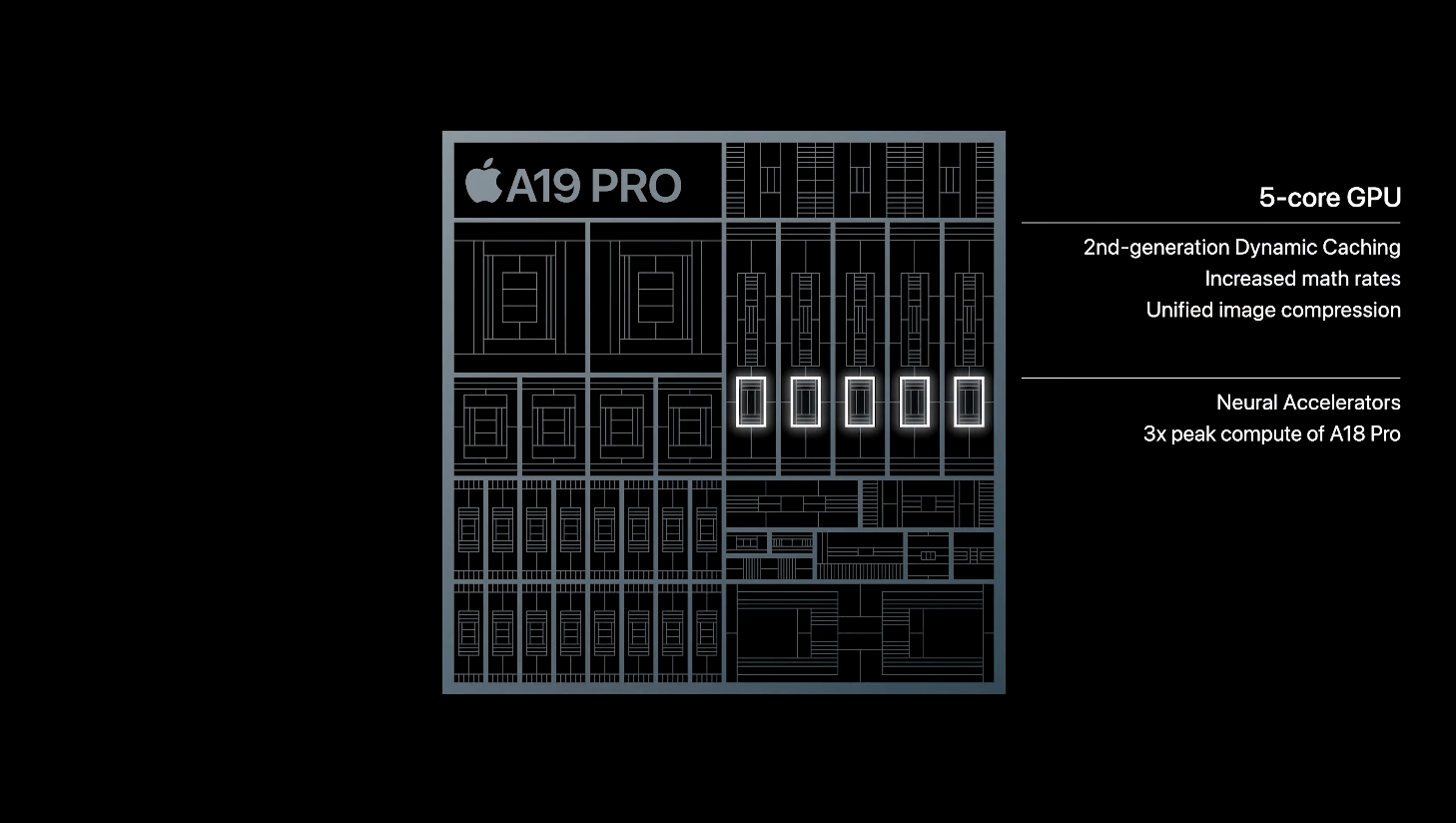
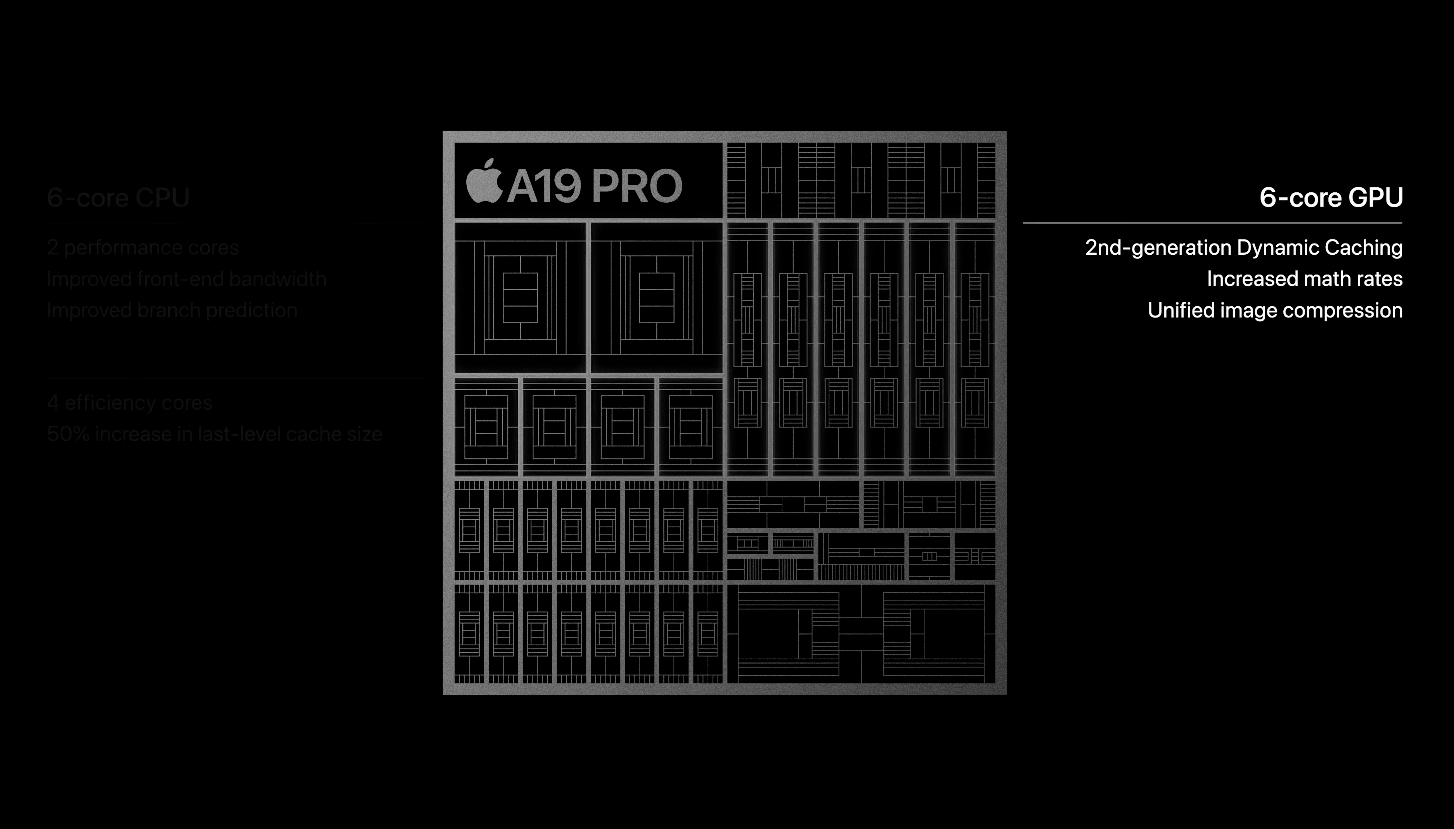
The A19 Pro will power the new iPhone Air alongside the iPhone 17 Pro line. Like the A19, its six-core CPU utilizes two performance and four efficiency cores. The performance cores have better branch prediction and increased front-end bandwidth, while the new efficiency cores have a 50% increase in last-level cache.
On the iPhone Air, there's a five-core GPU with the second generation of Apple's Dynamic Caching, with faster floating point math and better image compression. Each GPU core has its own Neural Accelerators, which Apple claimed allows for MacBook Pro-level performance in an iPhone.
The iPhone 17 Pro and Pro Max get a more powerful 6-core GPU. Apple is promising a 40% increase in sustained performance over the previous generation.
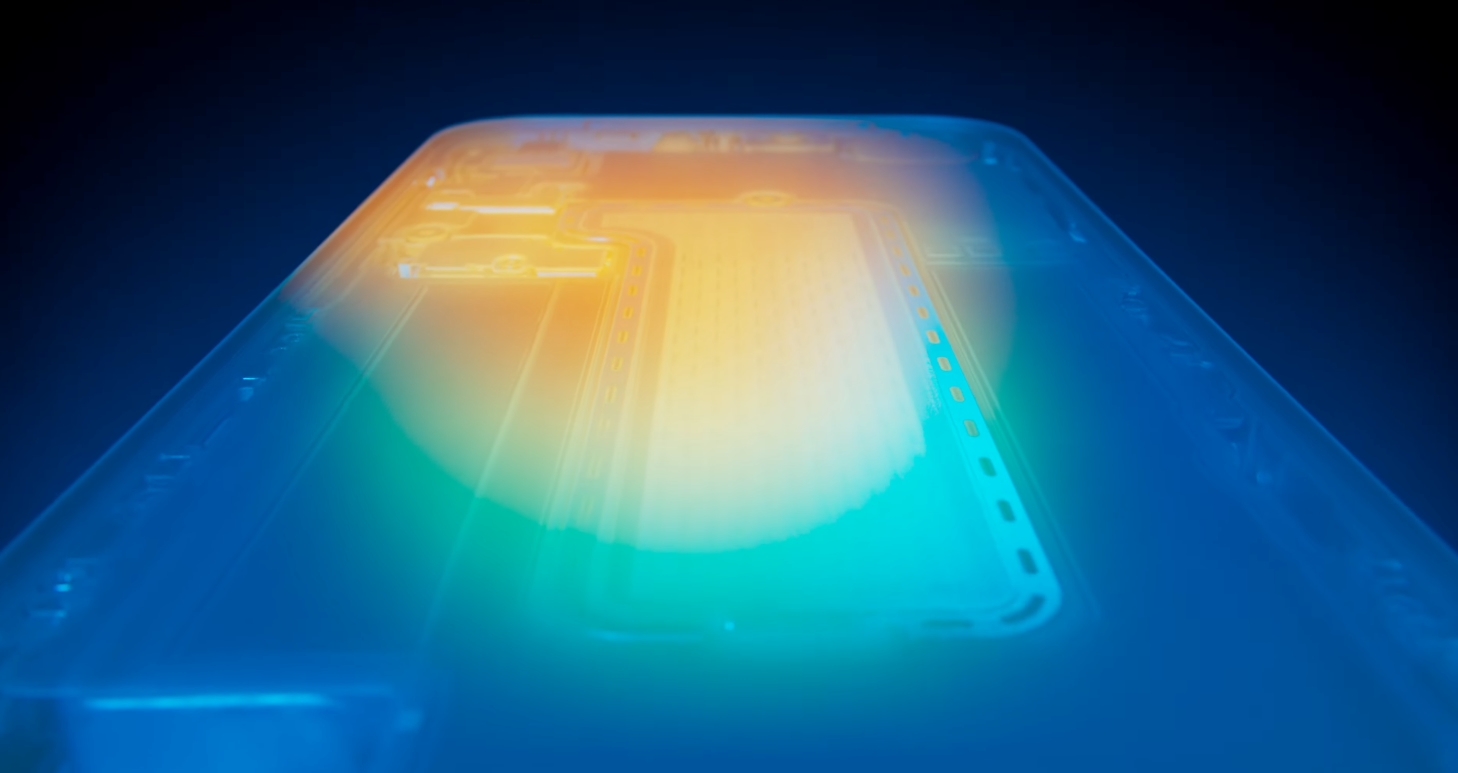
On the iPhone 17 Pro and Pro Max, the chip will be cooled by a new thermal system in a unibody design. This should help disperse heat and avoid the problems that iPhone 15 Pro users remember from launch in 2023.
The thermal system utilizes a vapor chamber filled with deionized water, which directs heat throughout the system. Apple says the aluminum unibody is 20 times better at cooling than the titanium used in the iPhone 15 Pro and iPhone 16 Pro. Unsurprisingly, Apple didn't compare the A19 Pro in the iPhone Air to the version in the 17 Pro and Pro Max, which have the vapor chamber and additional GPU core.
N1 and C1X
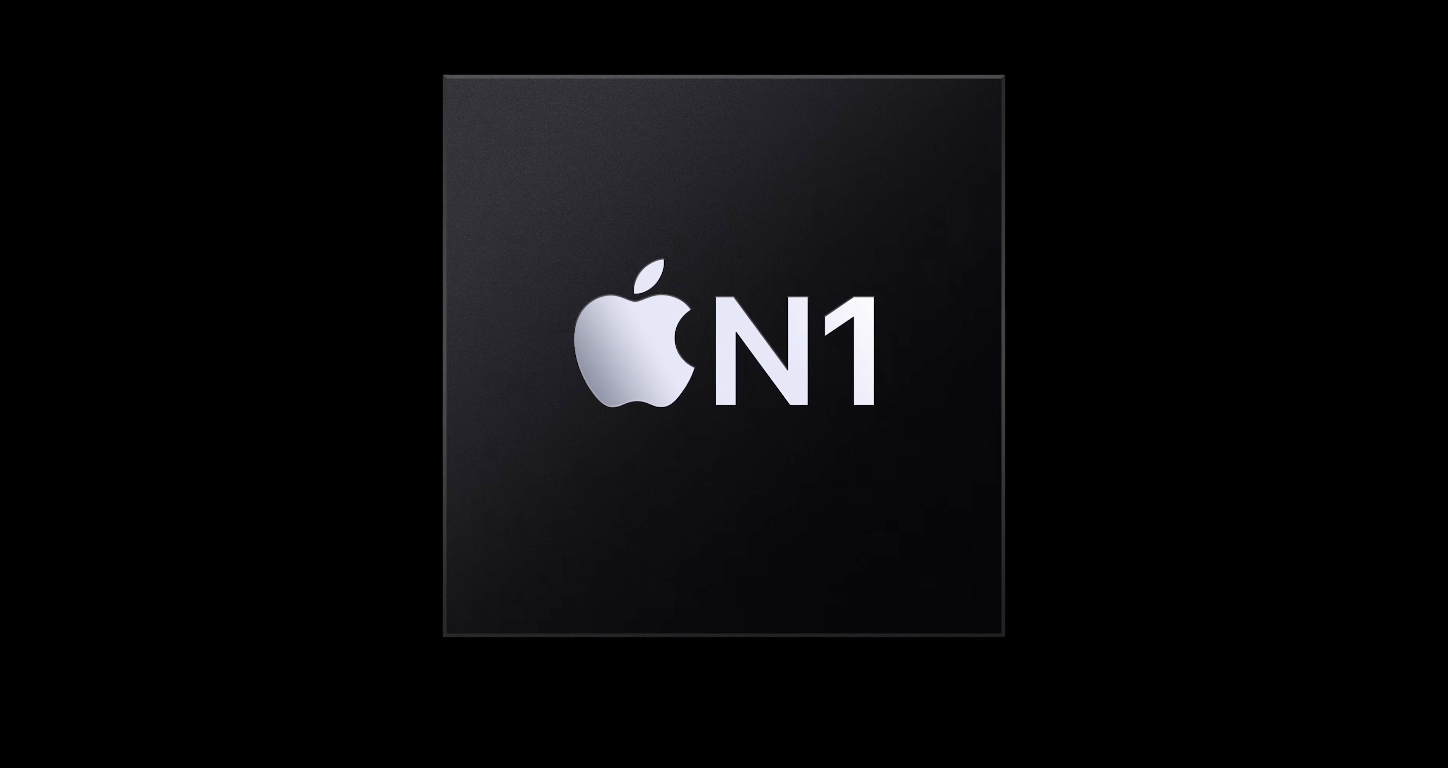
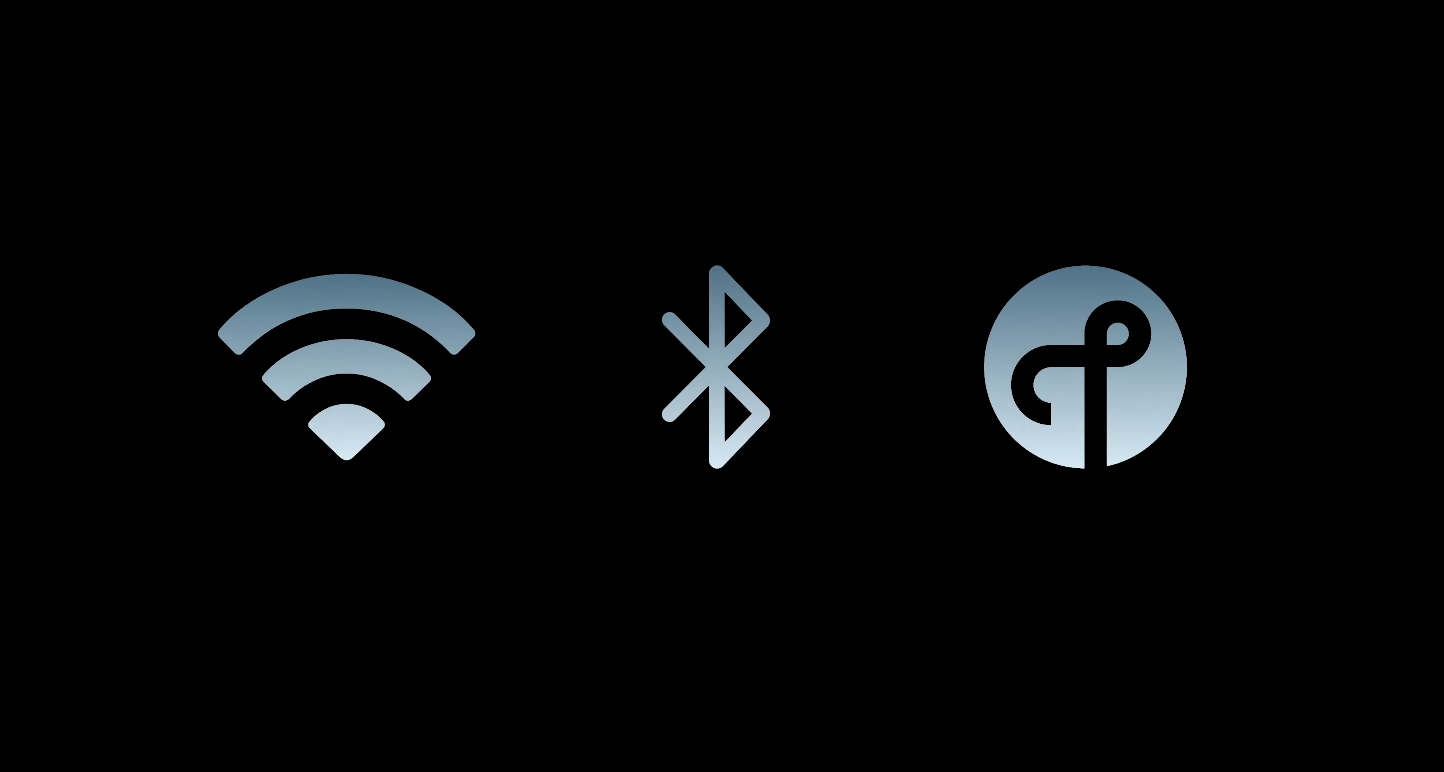
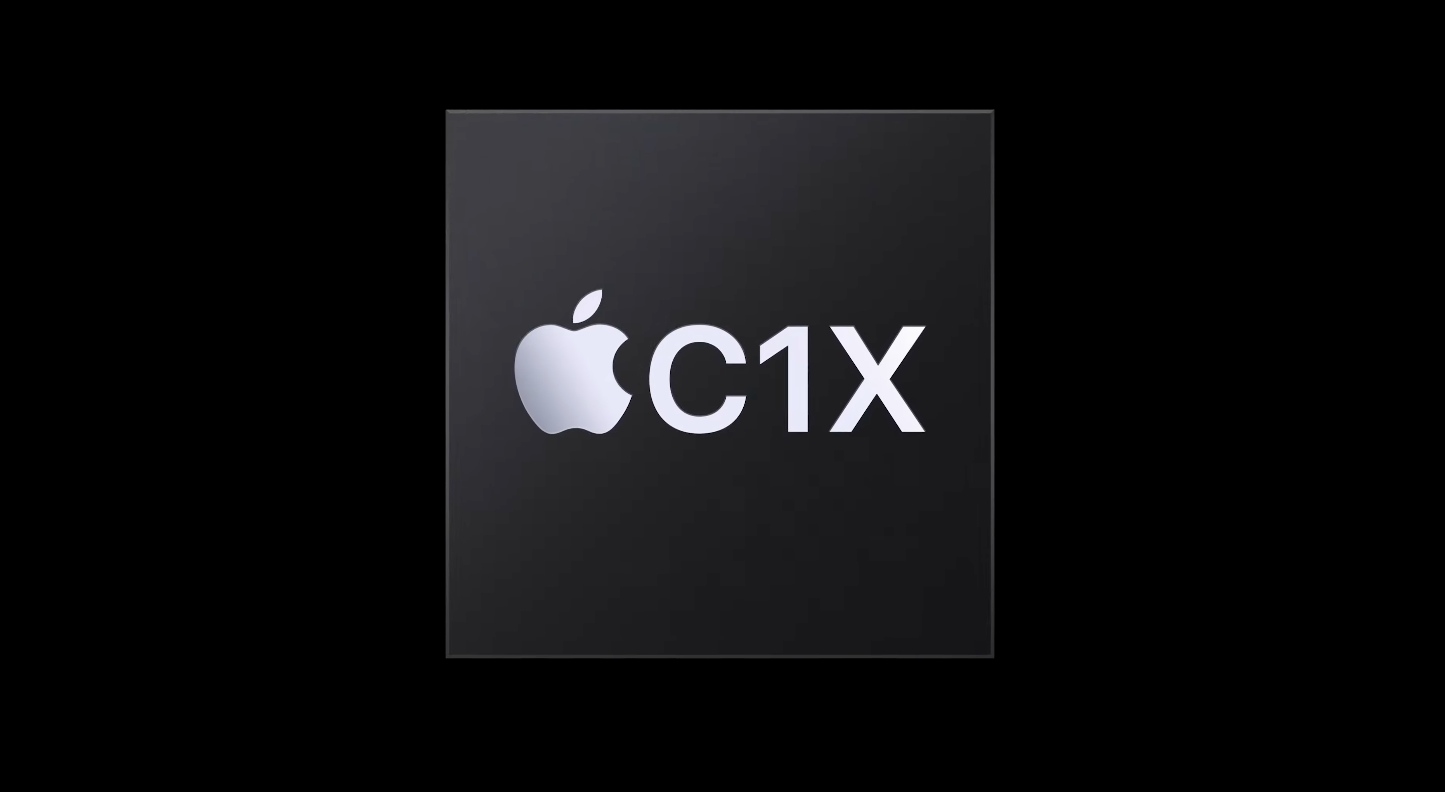
Apple is continuing its expansion into all of the chips in its phones. On the iPhone Air, Apple has built its own networking chip, N1. This chip will allow for Wi-Fi 7, Bluetooth connections, and Thread. The new N1 chip is found on all of Apple's latest iPhones.
Complementing the iPhone Air's new A19 Pro is a new Apple-designed N1 chip. This chip takes over wireless duties, including Wi-Fi 7, Bluetooth 6, and Thread support. Apple states that this integrated chip design will yield performance and efficiency benefits for functions such as AirDrop and Personal Hotspot.
Get Tom's Hardware's best news and in-depth reviews, straight to your inbox.
Apple also announced an update to its in-house C1 modem, which was first introduced with the iPhone 16e. The new C1X modem promises up to a 2x boost in performance, but it still doesn't include high-bandwidth, high-capacity mmWave technology. The iPhone 17 and iPhone 17 Pro models still feature Qualcomm 5G modems, so they retain mmWave support. Apple also boasts of an improvement in efficiency with the C1X.
iPhone 17, iPhone Air, iPhone 17 Pro pricing and availability
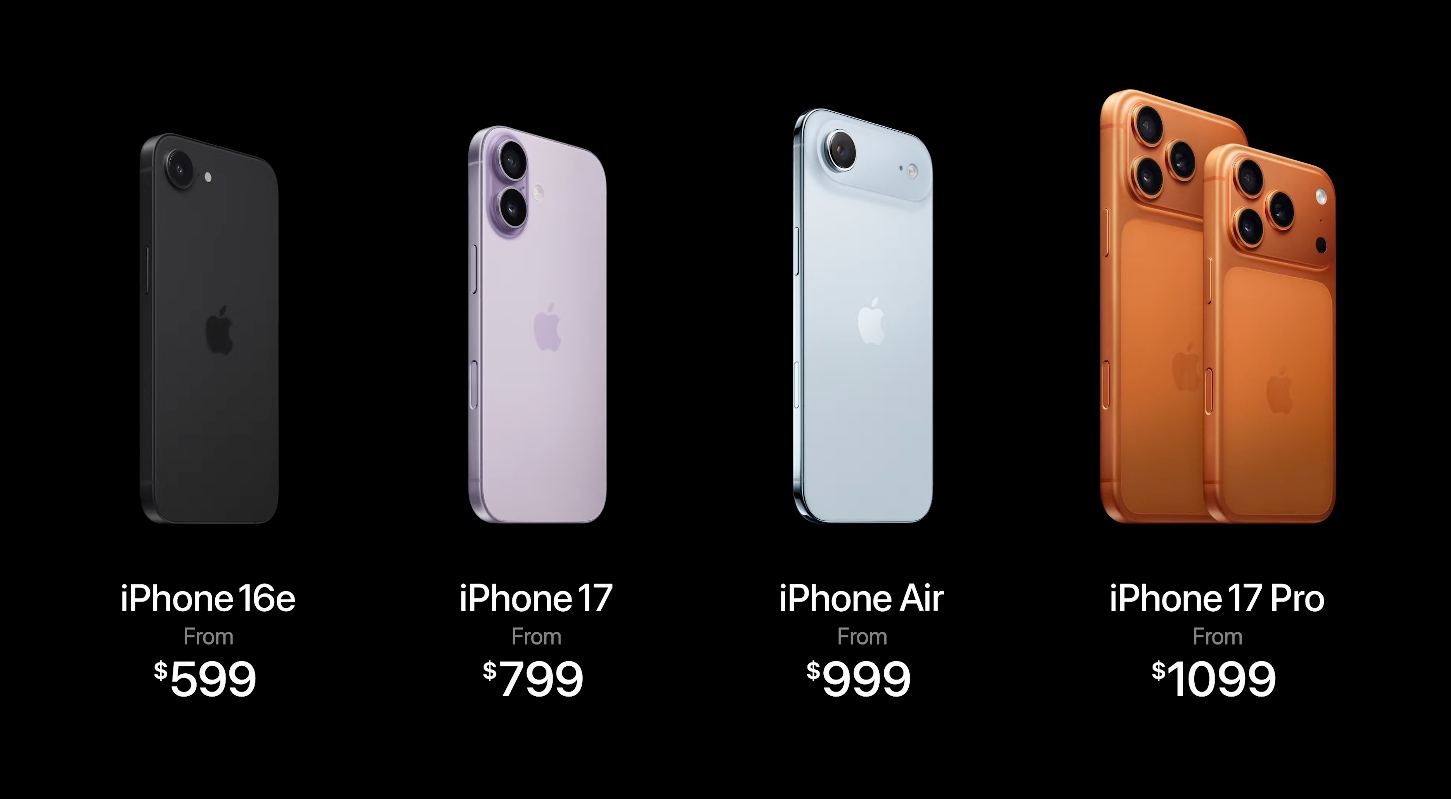
All of the iPhones will see pre-orders on Friday, with availability beginning on September 19. The iPhone 17 will start at $799, while the iPhone Air will begin at $999. The iPhone 17 Pro and Pro Max will start at $1,099 and $1,199, respectively. All of the phones will start with 256GB of storage. For the first time, the 17 Pro Max will also offer a 2TB option.
In addition to the iPhones, Apple today also announced the AirPods Pro 3, Apple Watch Series 11, Apple Watch SE 3, And Apple Watch Ultra 3.
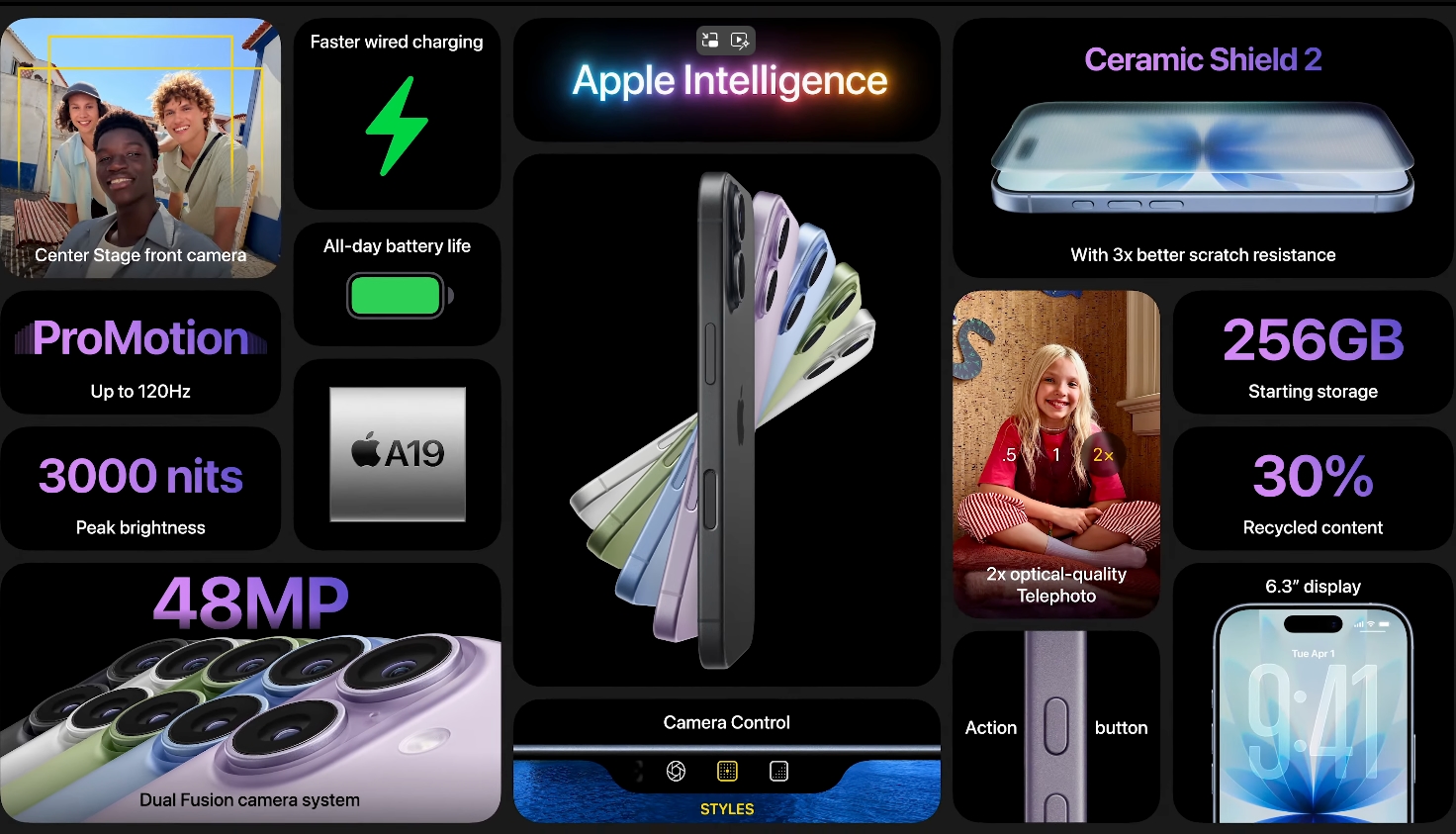
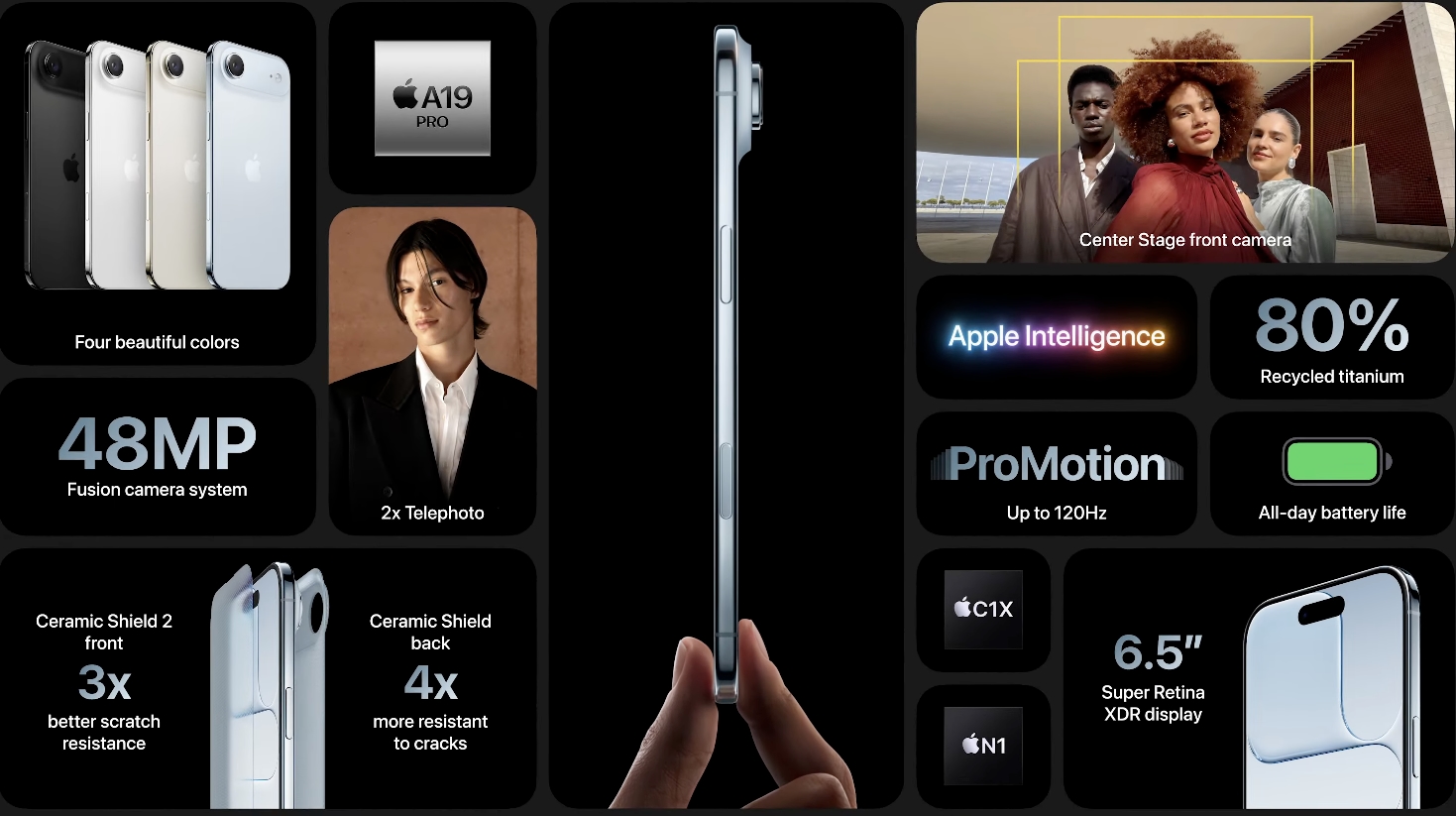
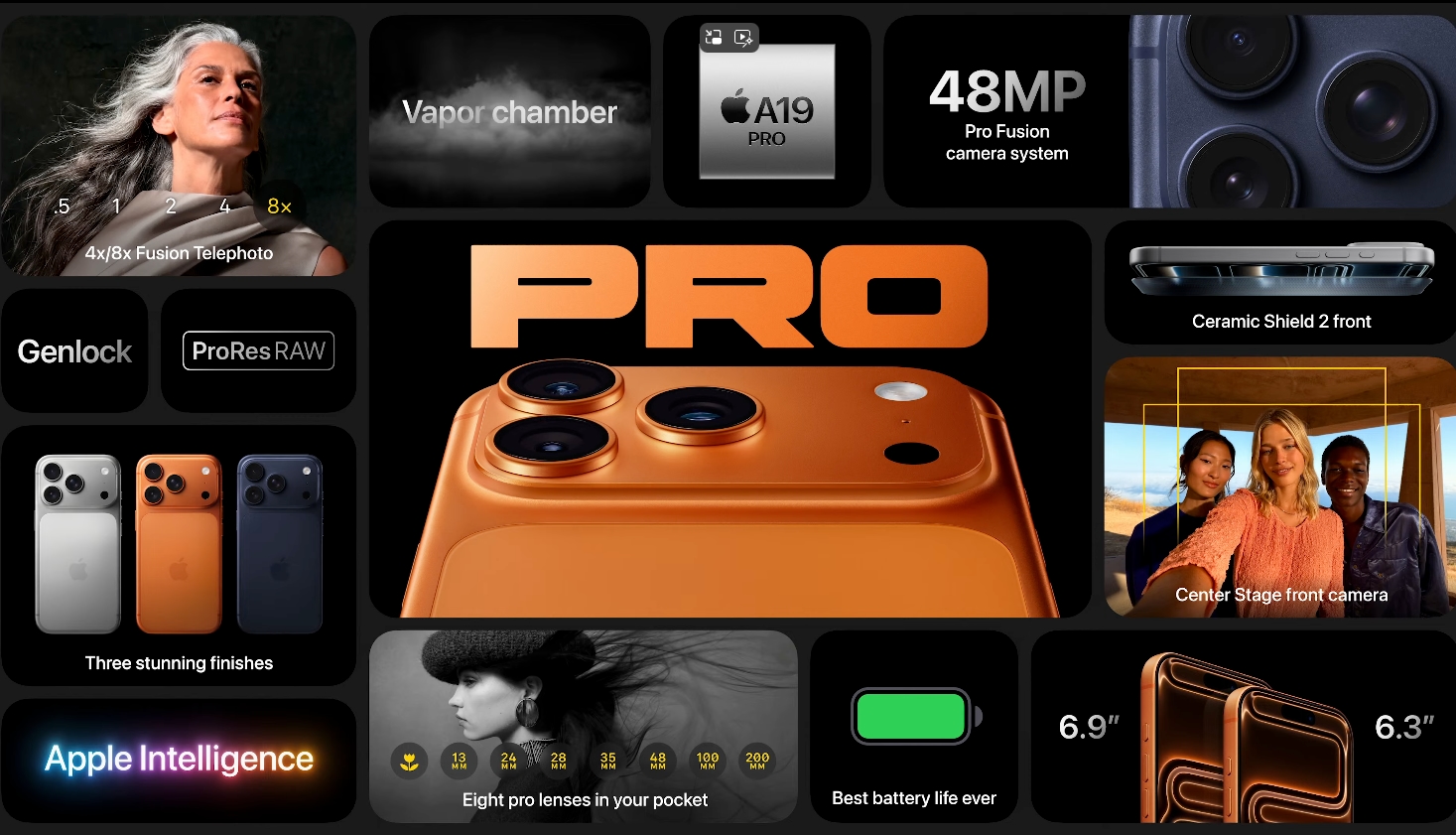

Andrew E. Freedman is a senior editor at Tom's Hardware focusing on laptops, desktops and gaming. He also keeps up with the latest news. A lover of all things gaming and tech, his previous work has shown up in Tom's Guide, Laptop Mag, Kotaku, PCMag and Complex, among others. Follow him on Threads @FreedmanAE and BlueSky @andrewfreedman.net. You can send him tips on Signal: andrewfreedman.01
-
JamesJones44 Having done zero research to this point. What happens after a few years to the deionized water? I assume there must be some loss in volume over time. I wonder how performance of the vapor chamber changes over time.Reply -
DS426 Reply
Gaming GPU's have utilized vapor chambers for some time, and from what I can tell, performance doesn't change much. TIM paste probably degrades quicker in performance terms.JamesJones44 said:Having done zero research to this point. What happens after a few years to the deionized water? I assume there must be some loss in volume over time. I wonder how performance of the vapor chamber changes over time. -
User of Computers Reply
Given that it's sealed with nonporous metal, I assume that the water doesn't evaporate for a long time.JamesJones44 said:Having done zero research to this point. What happens after a few years to the deionized water? I assume there must be some loss in volume over time. I wonder how performance of the vapor chamber changes over time. -
BobMcBurger This event was odd to me, more so for a few reasons. First is the new chips, N1 and C1X. They only mention this when talking about the Air, not covering at all if the other models possess these or not.Reply
Secondly, is battery size. This is the first year they've mentioned lacking a SIM tray means a bigger battery. The problem here is, unless you are in the US or other regions which sell eSIM iPhones, you are missing out on that extra capacity whilst paying the same price. The fact the option to choose an eSIM or not model doesn't exist is rather annoying. The eSIM 17PM is said to have a 5088mAh battery, around that. One with the SIM tray is around 200mAh less... -
Alvar "Miles" Udell Starting at 256GB storage for $799 hopefully it will lead Google and Samsung finally axing 128GB non-budget phones. Kinda makes the 128GB Pixel 10 and Galaxy 25 look like price gougers now...Ironically the reverse from a few years ago...Reply -
edzieba Reply
The exact same thing as every other heatpipe and vapour chamber used in consumer electronics: very little. Water at below atmospheric pressure is the standard working fluid.JamesJones44 said:Having done zero research to this point. What happens after a few years to the deionized water? I assume there must be some loss in volume over time. I wonder how performance of the vapor chamber changes over time.
Apple are masters at taking a bog-standard implementation of a common component (in this case a heatpipe or vapour chamber) and marketing the hell out of it by pretending it's something special. -
Notton Vapor chambers haven't been around as long as heatpipes, but the general consensus is they last for 5 to 10 years depending on manufacturing quality.Reply
Where as heatpipes last some 20 to 30 years.
De-ionized water is very standard feature for heat pipes and vapor chambers.
Apple is not the first to use a VC in a phone. AFAIK, Asus RoG phone was the first, and it's a common feature on high end phones. Samsung, and Redmagic had it years before Apple. -
LordVile I’m interested to see how the air performs, having most of the internal in the camera bar is clever vs other thin phones, hopefully this will result in better battery life vs the competition however thermals will be interesting.Reply
Also it looks like they heard people consider google the best camera on a phone and took that personally with all the updates to the pro -
M0rtis Reply
At the very least, the new iPhone launch got an article. The launch of the Pixels got ZERO mentions ....baboma said:My takeaway of the Apple Event article isn't about Apple products, but about THW coverage itself.
I was checking out Apple's annual rollout on YT, and came across TomsGuide' coverage of it.
MHYL1eu7FZsView: https://www.youtube.com/shorts/MHYL1eu7FZs7nLS6SiflKMView: https://www.youtube.com/watch?v=7nLS6SiflKM
The annual iPhone announcement is a "big deal" for many, TG's coverage is relatively light, as coverages go. But it is still worlds away from THW's one-article (mostly text) mention. THW's piece is mixed in among the fillers, like the $5 dumpster dive find, or some bug in a pinball game, along with of course the usual "on sale" ad spam.
One can argue that iPhones aren't relevant to THW readers' interest--but then, neither is dumpster diving, or the various going-ons in China, or some dumb pinball game. Even the fillers are getting worse.
I've not been on THW long as some, but even for my short stay, I can see the decline. Before, I can count on the occasional CPU or GPU deep dives from Paul Alcorn or Jarred. Those days are over.
The THP "premium" isn't helping. The handful of "premium" articles are driving "free" content quality further into filler-land. At this point, we can see where "premium" is headed--toward the same fate as the dysfunctional and orphaned Hammerbot. Just another eyesore--except this one will cost THW more money, and fewer eyeballs.
I don't blame anyone, not the writers of the filler content, not the staff (who I imagine know the site's shortcomings all to well), and not the Future corporate office. It's just how things are. Sites have their heyday, and THW has probably overstayed its welcome, like the Anandtechs and others before it.